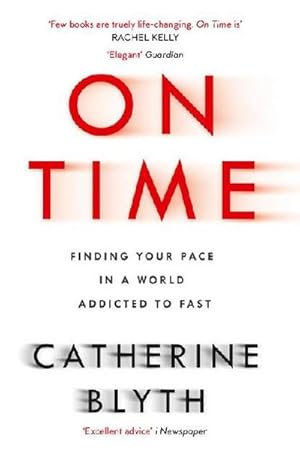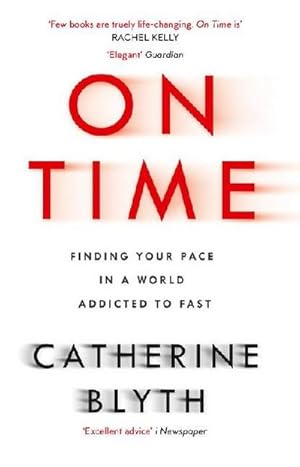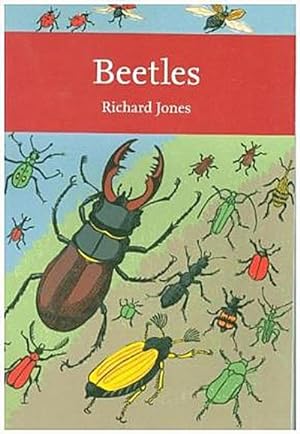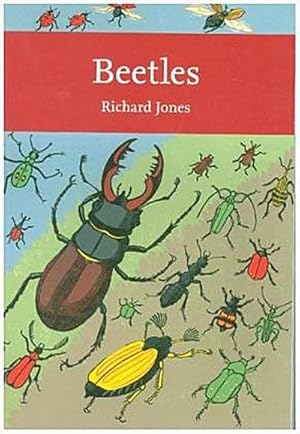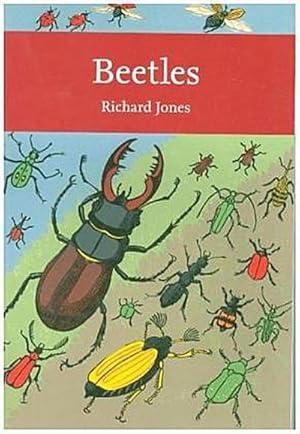harpercollins uk william collins jan 2018 (6 résultats)
Type d'article
- Tous les types de produits
- Livres (6)
- Magazines & Périodiques
- Bandes dessinées
- Partitions de musique
- Art, Affiches et Gravures
- Photographies
- Cartes
- Manuscrits & Papiers anciens
Etat
Reliure
- Toutes
- Couverture rigide
- Couverture souple (6)
Particularités
- Ed. originale
- Signé
- Jaquette
- Avec images (6)
- Sans impressions à la demande (6)
Livraison gratuite
- Frais de port gratuits USA
Pays
Evaluation du vendeur
-
On Time
Edité par William Collins Harpercollins UK Jan 2018, 2018
ISBN 10 : 0008190003ISBN 13 : 9780008190002
Vendeur : BuchWeltWeit Ludwig Meier e.K., Bergisch Gladbach, Allemagne
Livre
Taschenbuch. Etat : Neu. Neuware -We have more time than ever - so why do we feel time poor This is because our world is addicted to fast and we have become its servant. Instead of grasping the liberating potential of technology, many of us are stuck in a doomed race to outpace hurry. Catherine Blyth combines cutting-edge research in neuroscience and psychology with stories ranging from Leonardo da Vince to Anna Wintour, Kant, and Keith Richards, to reveal timeless truths about humanity's finest invention and how it shapes our lives. Angry, witty and enlightening, On Time is a handbook for navigating a fast-forward world that asks the questions productivity guides ignore such as why time speeds up when you long for it to slow down, how to reset your body clock, and what hours suit which activities best. So stop clock-watching and quit chasing white rabbits. Rediscover how time can be your servant. Englisch.
-
On Time
Edité par Harpercollins UK, William Collins Jan 2018, 2018
ISBN 10 : 0008190003ISBN 13 : 9780008190002
Vendeur : Rheinberg-Buch Andreas Meier eK, Bergisch Gladbach, Allemagne
Livre
Taschenbuch. Etat : Neu. Neuware -We have more time than ever - so why do we feel time poor This is because our world is addicted to fast and we have become its servant. Instead of grasping the liberating potential of technology, many of us are stuck in a doomed race to outpace hurry. Catherine Blyth combines cutting-edge research in neuroscience and psychology with stories ranging from Leonardo da Vince to Anna Wintour, Kant, and Keith Richards, to reveal timeless truths about humanity's finest invention and how it shapes our lives. Angry, witty and enlightening, On Time is a handbook for navigating a fast-forward world that asks the questions productivity guides ignore such as why time speeds up when you long for it to slow down, how to reset your body clock, and what hours suit which activities best. So stop clock-watching and quit chasing white rabbits. Rediscover how time can be your servant. Englisch.
-
On Time : Finding Your Pace in a World Addicted to Fast
Edité par Harpercollins UK, William Collins Jan 2018, 2018
ISBN 10 : 0008190003ISBN 13 : 9780008190002
Vendeur : Smartbuy, Einbeck, Allemagne
Livre
Taschenbuch. Etat : Neu. Neuware - We have more time than ever - so why do we feel time poor This is because our world is addicted to fast and we have become its servant. Instead of grasping the liberating potential of technology, many of us are stuck in a doomed race to outpace hurry. Catherine Blyth combines cutting-edge research in neuroscience and psychology with stories ranging from Leonardo da Vince to Anna Wintour, Kant, and Keith Richards, to reveal timeless truths about humanity's finest invention and how it shapes our lives. Angry, witty and enlightening, On Time is a handbook for navigating a fast-forward world that asks the questions productivity guides ignore such as why time speeds up when you long for it to slow down, how to reset your body clock, and what hours suit which activities best. So stop clock-watching and quit chasing white rabbits. Rediscover how time can be your servant. Englisch.
-
Beetles
Edité par William Collins Harpercollins UK Jan 2018, 2018
ISBN 10 : 000814950XISBN 13 : 9780008149505
Vendeur : BuchWeltWeit Ludwig Meier e.K., Bergisch Gladbach, Allemagne
Livre
Taschenbuch. Etat : Neu. Neuware - Beetles are arguably the most diverse organisms in the world, with nearly half a million beetle species described and catalogued in our museums, more than any other type of living thing. This astonishing species diversity is matched by a similar diversity in shape, form, size, life history, ecology, physiology and behaviour. Beetles occur everywhere, and do everything. And yet they form a clearly discrete insect group, typically characterised by their attractively compact form, with flight wings folded neatly under smooth hard wing-cases. Almost anyone could recognise a beetle, indeed many are intimately associated with human society. Groups like ladybirds are familiar to us from a very young age. Large stag beetles and handsome chafers are celebrated for their imposing size and bright colours. The sacred scarabs of the ancient Egyptians were given iconic, if not god-like, status and even though the exact religious meanings may be fading after three millennia, their bewitching jewellery and monumental statuary inspire us still. Despite this ancient and easy familiarity with beetles, the Coleoptera remains tainted by the notion that it is a 'difficult' group of insects. The traditional routes into studying British natural history, through birdwatching, butterfly-collecting and pressing wild flowers, now extend to studying dragonflies, bumblebees, grasshoppers, moths, hoverflies and even shieldbugs. These are on the verge of becoming popular groups, but beetles remain the preserve of the expert, or so it seems. So many British beetles are easy to find and easy to identify by the non-expert, but that bewildering background diversity, and the daunting numbers of species in the Coleoptera as a whole, have been enough to dissuade many a potential coleopterist from grasping the nettle and getting stuck in. Richard Jones' groundbreaking New Naturalist volume on beetles encourages those enthusiasts who would otherwise be put off by the, to date, rather technical literature that has dominated the field, providing a comprehensive natural history of this fascinating and beautiful group of insects. Englisch.
-
Beetles
Edité par Harpercollins UK, William Collins Jan 2018, 2018
ISBN 10 : 000814950XISBN 13 : 9780008149505
Vendeur : Rheinberg-Buch Andreas Meier eK, Bergisch Gladbach, Allemagne
Livre
Taschenbuch. Etat : Neu. Neuware - Beetles are arguably the most diverse organisms in the world, with nearly half a million beetle species described and catalogued in our museums, more than any other type of living thing. This astonishing species diversity is matched by a similar diversity in shape, form, size, life history, ecology, physiology and behaviour. Beetles occur everywhere, and do everything. And yet they form a clearly discrete insect group, typically characterised by their attractively compact form, with flight wings folded neatly under smooth hard wing-cases. Almost anyone could recognise a beetle, indeed many are intimately associated with human society. Groups like ladybirds are familiar to us from a very young age. Large stag beetles and handsome chafers are celebrated for their imposing size and bright colours. The sacred scarabs of the ancient Egyptians were given iconic, if not god-like, status and even though the exact religious meanings may be fading after three millennia, their bewitching jewellery and monumental statuary inspire us still. Despite this ancient and easy familiarity with beetles, the Coleoptera remains tainted by the notion that it is a 'difficult' group of insects. The traditional routes into studying British natural history, through birdwatching, butterfly-collecting and pressing wild flowers, now extend to studying dragonflies, bumblebees, grasshoppers, moths, hoverflies and even shieldbugs. These are on the verge of becoming popular groups, but beetles remain the preserve of the expert, or so it seems. So many British beetles are easy to find and easy to identify by the non-expert, but that bewildering background diversity, and the daunting numbers of species in the Coleoptera as a whole, have been enough to dissuade many a potential coleopterist from grasping the nettle and getting stuck in. Richard Jones' groundbreaking New Naturalist volume on beetles encourages those enthusiasts who would otherwise be put off by the, to date, rather technical literature that has dominated the field, providing a comprehensive natural history of this fascinating and beautiful group of insects. Englisch.
-
Beetles
Edité par Harpercollins UK, William Collins Jan 2018, 2018
ISBN 10 : 000814950XISBN 13 : 9780008149505
Vendeur : AHA-BUCH GmbH, Einbeck, Allemagne
Livre
Taschenbuch. Etat : Neu. Neuware - Beetles are arguably the most diverse organisms in the world, with nearly half a million beetle species described and catalogued in our museums, more than any other type of living thing. This astonishing species diversity is matched by a similar diversity in shape, form, size, life history, ecology, physiology and behaviour. Beetles occur everywhere, and do everything. And yet they form a clearly discrete insect group, typically characterised by their attractively compact form, with flight wings folded neatly under smooth hard wing-cases. Almost anyone could recognise a beetle, indeed many are intimately associated with human society. Groups like ladybirds are familiar to us from a very young age. Large stag beetles and handsome chafers are celebrated for their imposing size and bright colours. The sacred scarabs of the ancient Egyptians were given iconic, if not god-like, status and even though the exact religious meanings may be fading after three millennia, their bewitching jewellery and monumental statuary inspire us still. Despite this ancient and easy familiarity with beetles, the Coleoptera remains tainted by the notion that it is a 'difficult' group of insects. The traditional routes into studying British natural history, through birdwatching, butterfly-collecting and pressing wild flowers, now extend to studying dragonflies, bumblebees, grasshoppers, moths, hoverflies and even shieldbugs. These are on the verge of becoming popular groups, but beetles remain the preserve of the expert, or so it seems. So many British beetles are easy to find and easy to identify by the non-expert, but that bewildering background diversity, and the daunting numbers of species in the Coleoptera as a whole, have been enough to dissuade many a potential coleopterist from grasping the nettle and getting stuck in. Richard Jones' groundbreaking New Naturalist volume on beetles encourages those enthusiasts who would otherwise be put off by the, to date, rather technical literature that has dominated the field, providing a comprehensive natural history of this fascinating and beautiful group of insects.



